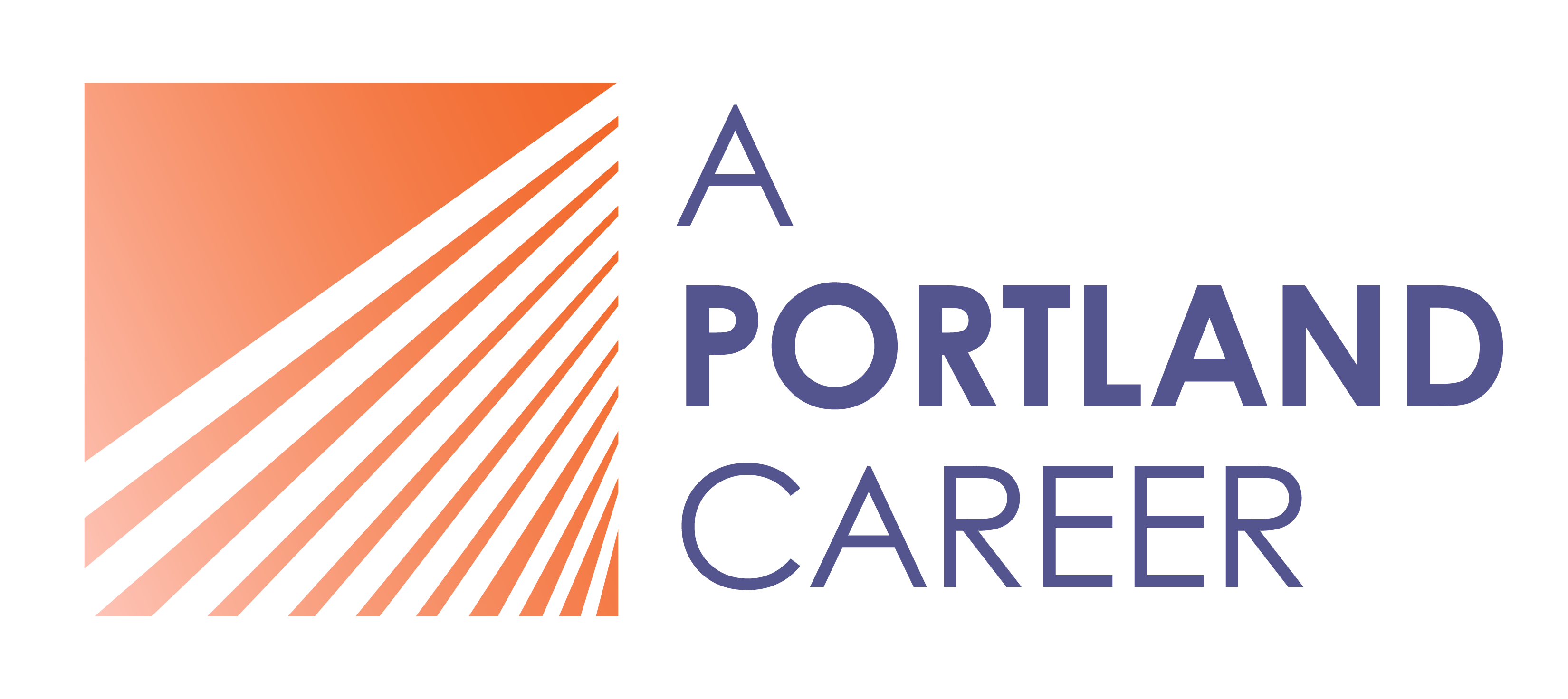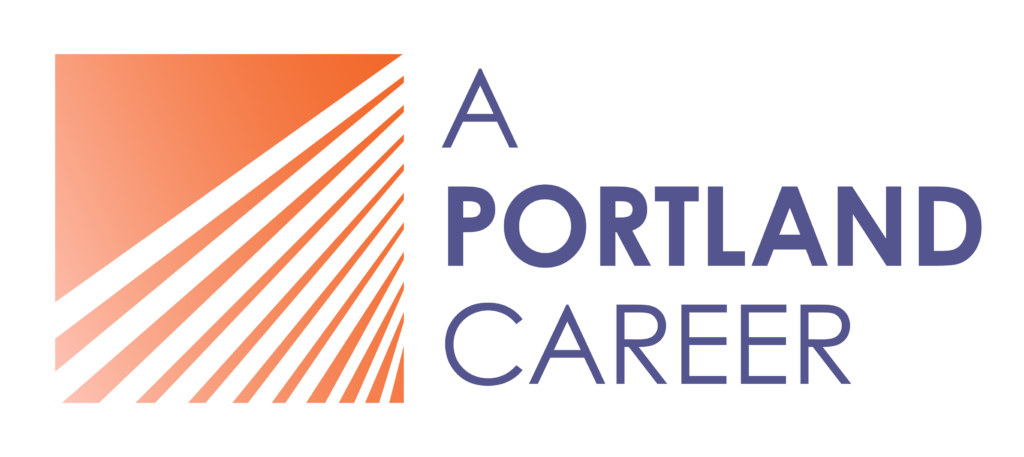In this career exploration brainstorm, we encourage you to think expansively about possible career paths, and then create the ideal career short list for you!
Changing careers is a full-time job in itself, on top of just paying the bills. Here’s 7 great ways to make money during your transition to a new career.
7 Ways to Make Money for Your Career Change and Still Pay the Bills
By A Portland Career, and edited by Dan Hahn, M.S., and Suzie Sherman
Need help organizing your career change? We’re standing by!

Wouldn’t it be great to have all the time in the world to make a career transition? Changing career paths takes time and money! You might need different work experience, additional job training, or even a master’s degree to qualify for your new role. How can you finance your career change and still keep a roof over your head? Here are seven great ways to do it.
For most people, exploring new career options while trying to make ends meet is difficult. Nobody wants to miss a bill payment or run up major credit card debt. Exploring a new career is kind of a full-time job in itself. Here, we’ll discuss seven great strategies to fund your career transition. We’ll show you how to supplement your income from a current job by taking on temp work, getting a part-time job, or joining the gig economy. We’ll also explore how you can find bridge jobs to your new field, do project-based consulting work, or find community resources to help you out. Plan your search with us, wherever you are on your career path.
Home → Helpful Articles → Career Exploration → 7 Ways to Make Money for Your Career Change and Still Pay the Bills
We’ve got lots of articles to help inspire and organize your career exploration. Take a look at these:
- Is It Time For A New Career Path?
- Your Career Values Assessment
- Getting Clear on Your Career Path: Discerning Your Interests and Passions
- Taking Your Skills Inventory: Self-Assessment Time
- The 6 Best Career Exploration Websites to Narrow Down your Job Search
- 7 Expert-Backed Research Tips to Find the Right Career
When you feel stuck, get in touch with us, and we’ll help you explore your strengths, interests, and passions to find a great career match for you.
On This Page

1. How to work the temp job angle
Temping means getting a temporary job through a staffing agency. Employers use staffing agencies for these main reasons:
- To accommodate seasonal or busy times workload flux;
- To avoid paying benefits to permanent employees;
- To try someone out before hiring them—an arrangement called “temp to hire.”
Typically, the employer contracts with the staffing agency, and the agency issues your paycheck.
Are you a good fit for temping?
Temping is well-suited to those who have strong office assisting, organizing, and basic computer skills. Most jobs are clerical positions (like filing, data entry, typing, and maintaining organization systems). If you have intermediate office suite skills in apps like Word, Excel, Access and PowerPoint, as well as video conferencing apps like Zoom, this might be a good fit for you. Read more about the basic office apps you need to know as a job seeker.
Receptionist and office assistant positions are common to find, and fast typing skills are highly valued. Temp agencies also hire accounting professionals, as well as manufacturing, shipping, and warehouse workers. Specialty placement agencies hire creative professionals such as graphic designers and web developers. We list some of these agencies below.
It takes persistence to get your foot in the door. Temp agencies are working for employers, so you have to convince the agency that you are a good “product” they can “sell,” or, to be less crass, you need to offer needed skills and reliability.
Our top tips for finding temp jobs
Scoring a temp job is a little tricky and specific, but once you get into the staffing agencies’ systems, you will find reliable work while you take the time to explore new career options. Here are our top recommendations:
- Register with job placement agencies. Pick two or three that appear to have jobs, or categories of jobs, that fit your profile. Then carefully follow their procedures. After you apply on their website, ask for an interview and computer skills test. Call weekly (or even daily) early in the morning to show your interest. Some agencies will ask you to update your availability weekly on their websites.
- Go to career fairs and look for the staffing agencies. Many agencies send recruiters to in-person career fairs, which take place at colleges, universities, and other public venues. Go to these fairs in the afternoon, so you can maximize your time with the recruiter while the fair is slower. Remember to make eye contact, offer a solid handshake, have your resume ready, and ask specific questions about their openings and hiring process. Get their business card so you can follow up after the fair. Organizations like CloudHire offer virtual career fairs all over the country. Set up an account, search for your city, and attend a local fair online.
- Target your resume very specifically to the skill set needed for the type of job you are most qualified for. Remember that getting a temp job is not a stepping stone to your ideal new career: it’s a way to make ends meet while you’re searching. That’s why you need to focus on work you’re already qualified for at this time. Keep in mind the person reviewing your resume will most likely spend less than a minute to see if your skills are a good match for the job. List a summary of qualifications and keywords that show your most employable skills at the top of the resume. The summary should distill your strengths and experience into a four to six sentence paragraph. Read our resume and cover letters series, starting with our article Plan Your Resume, to make sure your resume is updated with the right profile and keywords for your target jobs.
- Be persistent! After you’re in their system, check in regularly. Initially, take any job they offer. Once you show you’re a reliable worker, you can become more selective.
Temp staffing agencies we recommend
Our clients have given good reviews of the following staffing agencies:
- NW Staffing Resources specializes in positions with government and nonprofits.
- DPI Staffing (formerly DePaul Staffing) offers placements in government and nonprofits, as well as private sector jobs. They give placement preference to people with disabilities and those who face significant barriers to employment, like older adults and formerly incarcerated people.
- Boly:Welch is a local, woman-owned business with a solid reputation. They place employees mostly in clerical positions in typical business settings.
- Aquent is the most active creative placement agency. It is a national agency with a local presence. They place experienced copywriters, technical writers, marketing professionals, programmers, web designers/developers, and more.
- 52LTD calls itself a hybrid model, functioning both as a design firm and a small creative staffing agency.
- Mathys+Potestio Jackie Mathys, a long-time Portland recruiter for creative directors and other highly experienced creatives, joined forces with Steve Potestio to form this powerhouse creative staffing agency, which also has branches in Austin and Los Angeles. Their tagline is “staffing agencies don’t need to suck,” so you know they’re legit.

2. Get a bridge job
When making a career move, it’s easy to chomp at the bit for an immediate new role that matches your interests, values, and skills. More often than not, career changers have to find a bridge job or create an internship opportunity to make the transition from their previous work to the new career path they are hoping to enter. Even if your transferable skills seem obvious to you, alas, prospective employers often want to see directly related work on your resume before giving you a shot.
To become competitive, you may need to conduct a job search for work that provides a link between your current role and your future career path. The position might last a year or so, and, likely it will be closer to your old field than you’d like. You might also have to take a pay cut. But this strategy can lead to opportunities down the road that better match your career goals. Here’s an example from one of our clients:
Patrick ultimately wanted to work in the sustainable lumber products field. He was willing to work retail at Parr Lumber to network with future prospective employers and learn more about certified and non-certified wood products, before leveling up his career at a nonprofit working on sustainability.
Check out our article How to Decide on a Career Path, in which we discuss creating a focused plan to embark on a new career trajectory. You can read more about Patrick’s plan there!

3. Good old part-time work
Part-time employment provides some income, structure to your week, and a chance to build relationships with co-workers—all pleasant counterpoints to the stress of navigating a career exploration, especially when un-, or underemployed. It’s often near impossible to maintain full-time work while looking to change jobs, so part-time work might be the best way to continue to bring in steady income while you search.
Our client Alison, formerly a crisis counselor, reduced her workweek to part-time so that she could develop her expertise in the public transportation field, where she now works.
If staying in an existing job or field on a part-time basis is not a good option, other short-term, part-time work may help, particularly seasonal jobs:
- Macy’s, Target, and the Apple Store offer part-time sales jobs for the winter holidays.
- Larger hotels like Crowne Plaza and Hilton offer banquet and hospitality positions that are often part-time and on-call.
- Home Depot and Starbucks sometimes have weekend and holiday work available. Both companies are unusual in that they give benefits to some part-time employees.
- Sylvan Learning Centers and community colleges are always hiring part-time instructors or tutors. Varsity Tutors offers an online tutoring platform so tutors can work remotely.

4. Jump into the gig economy
Every day a new start-up pops up that claims to connect workers and employers, ushering in a new era of work flexibility often called the “gig economy”. Warning: these jobs are short on benefits and worker protections; however, they do maximize on flexibility, so you can fit in your career exploration and new skills training easily between pick-up shifts. You stand to make a decent paycheck in some cases, as well, especially if you can hustle.
- The Craigslist Gigs section connects you with companies and individuals posting short-term and gig-based employment opportunities.
- Taskrabbit allows you to create a profile and chat online with people seeking help for gig-based projects. Set your own rate, and start building your list of clients for the skills or abilities you already have: muscle for a move, assembling Ikea furniture, even writing, editing, and graphic design.
- Gigwalk matches gig-based work assignments to nationwide locations. Create your account on the app, and then start accepting the gigs that look good in your area, whether it’s a 5-minute task, or an ongoing project. “Unlock” better paying gigs by doing great work.
- Upwork connects freelancers with employers looking for designers, writers, programmers, virtual assistants, and other skilled professionals.
- Uber and Lyft let you turn your car into a taxi, as long as you have a clean driving record, and don’t mind some chatty customers. Food delivery platforms like UberEats and DoorDash let you do similar work with less customer interaction. This work won’t make you rich, but it can be a viable source of income when you’re between careers.

5. Lights, camera, extra!
Hollywood studios have discovered Portland and love shooting TV and movies here. Grimm and Leverage enjoyed long runs and employed thousands of people throughout the city. More recently, the Netflix series Everything Sucks and director Guillermo del Toro’s retelling of Pinocchio filmed in Portland.
The pay is not great, but extras—the people you see in the background of movies and television shows in crowds or seated in restaurants—seem to enjoy the work and form strong bonds with one another. It can offer a fun opportunity to step into a unique, creative world while you think through your next steps. Register with Casting Calls Portland or Weeble Mountain, or watch for extras casting call ads in The Oregonian, Indeed, and on social media.

6. Hang up your shingle as a consultant
Consulting or contract work can be a strategic way to bring in cash while filling the gap on your resume with relevant experience. Technical and creative skills are in high demand on a project-basis. Doing contract work is also excellent practice if your ultimate goal is to be self-employed. You can do project-based jobs for individuals or companies that might just become your future clients.
Your current professional network is the most likely place to find these kinds of projects. You can use LinkedIn, Facebook, and your email list to explain your skills and the problems you can solve for your connections, friends, and contacts. Read our post on finding your networking style to learn more about how to build your network, even if you aren’t so hot on the word “networking.” Your message to find consulting work can look like this:
“I’m writing to let you know that I am available for projects over the next few months. With my advanced Excel and Quickbooks skills, I can help you organize your home or small-business finances.”
(Insert your own skills to tailor your pitch to your situation, of course.)
You can also cold-pitch projects to companies and organizations aligned with your career goals, ideological, or creative callings. Your message:
“I am passionate about your mission of addressing hunger. I am a seasoned grant writer and I am available for an honorarium (reduced rate) to research and write grants under your supervision. Would you like to talk?”

7. Ask for help through community assistance programs
During your career transition, you may experience a high degree of financial and emotional stress. For example, you may lack health insurance, or struggle to pay the bills. If you have kids or dependent family members, this time can be particularly stressful.
Excellent community resources are available during this challenging phase. Don’t be afraid or embarrassed to use them. You don’t have to be in dire straits to ask for help. The “safety net” the community provides is designed for everyone, including many middle-class and educated individuals needing temporary support. You might be surprised by how many resources are available, even in this time of limited public and private funding. Government agencies still offer a variety of resources, and many more are available through nonprofit organizations. Some programs may be free, while others offer services on a low-fee or sliding scale-basis.
Check out these community resources for financial aid and assistance during your career search, if you are struggling to make ends meet:
- State of Oregon Assistance Services – including food assistance (SNAP), cash (TANF) and child care (ERDC) and all the information you need about eligibility
- Multnomah County Emergency Rent Assistance – receive 9 or 12 months of rent assistance if your household income is at or below 80% or 50% of area median. The site includes an income calculator and information about how to apply.
- Oregon Health Plan – the statewide Medicaid and Children’s health insurance program for eligible residents who need accessible preventive and emergency health care services.
- Impact NW – a network of nonprofits and community agencies providing one-time or ongoing support for individuals and families struggling with housing, child care, senior care, and more.
There is high competition in many fields, so you are not alone. When you’re back on your feet and earning good money, you can give back by donating to, or volunteering for agencies that helped you.
If it’s money for school you’re looking for, read our article on everything you need to know to finance your higher education.
Final thoughts on ways to make money for your career change
Finding a new career, on top of the daily grind to pay rent, is a challenge. But there are a lot of ways to take the money stress out of your career transition. Use this post as a guideline to help you in your search for temp work, part-time jobs, or a gig or consulting project. And don’t let shame or embarrassment get in the way of utilizing community resources to help you if you’re really struggling.
Key takeaways
- Making a big career transition takes time and money. Additional training or education, or getting more work experience in your new field are all important things you need to navigate this change.
- Some of the best options for supplementing your income are finding temp work, getting a bridge job to gain work experience in a different industry, getting an ongoing part-time job, doing gig work, consulting with skills you already have, or finding local opportunities like extras work.
- Community resources are available for help with housing, food, and other living expenses while you are between jobs or careers. Don’t be afraid to reach out for assistance.
Related articles you might be interested in:
How to Decide On a Career Path
Deciding on a career path can feel overwhelming, but with clear objectives, solid self-assessment, and a healthy trust of your gut instincts, you can do this thing!
Getting Clear on Your Career Path: Discerning Your Interests and Passions
Decide whether you should pursue a practical career or a passionate calling with our career interest assessment.
6 Factors that Impact Your Career Change Time Frame
Here are the practical and emotional factors that can impact your job search, with room for serendipity and the unexpected!





